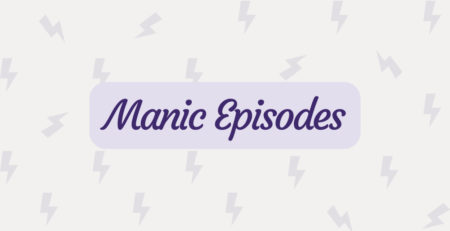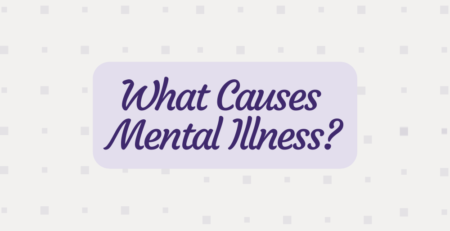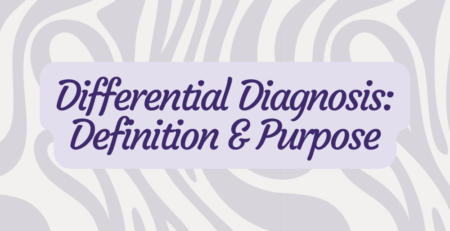Do I Need Therapy?
We’re excited to see that the stigma around mental illness has lessened in recent decades. Indeed, many prominent people are now speaking openly about their own mental-health struggles. Nonetheless, negative stereotypes persist, and fewer than half of people with mental illness seek treatment. Today, we want to clear up top myths about mental health care. We’ll also answer the question on everyone’s mind: “Do I need therapy?”
Myths and Facts About Therapy
Even those who admit they may need therapy often are unclear on how it works and what it involves. Here are some of the most common misconceptions about therapeutic interventions.
Myth #1: Therapy is the same as psychiatry.
They are two different things! A psychiatrist is an M.D. specializing in mental and behavioral illnesses, whose role may be limited to evaluation/diagnosis and the prescription of medications. A therapist is any professional (requirements and titles vary) certified to help patients resolve chronic struggles by exploring problems and solutions. When combined, therapy and psychiatry can serve as a powerful dual approach to improving your mental well-being.
Myth #2: Therapy is only for very traumatized people.
Therapy is great for everyone—and is usually recommended where there’s any room for doubt. If you’ve experienced a loss or just feel a bit down, consider finding someone to talk to. (“When to See a Therapist,” below, offers a checklist for evaluating whether you need help.)
Myth #3: The goal of therapy is to “fix” one particular person.
First, “fixing” is the wrong word, since patients are themselves actively involved in working for long-term change. Second, where one person needs therapy, there’s usually a whole household contributing to the problem. For example, if a person has an active drug addiction, their family members may be enabling them. Modern wisdom encourages the entire family to participate in counseling together.
Myth #4: All therapy is the same.
Nope! And real-life therapy rarely matches the classic stereotype of patient lying on couch with therapist sitting nearby. There are many widely used forms oftherapy today, including peer-group sessions, art therapy and cognitive behavioral therapy. This means that you can try different approaches until you find the one that works best for you.
Myth #5: I need to keep my therapy sessions a secret; what if everyone finds out?
This concern is far less prevalent than it was among previous generations. Not only is there much wider understanding of mental illness and its treatment, there are anti-discrimination laws to protect against arbitrary dismissal on these grounds—plus, most health insurance policies include coverage for necessary therapeutic services.
Do I Need Therapy?
You may need therapy if:
- You’ve experienced a traumatic event.
- Your favorite activities are losing their appeal, for no obvious reason.
- You’re sleeping or eating less (or more) than you used to.
- You get annoyed with others more easily than you used to. Or you find yourself avoiding others without cause.
- You’re afraid of certain people, things or circumstances—or you’re generally worried all the time—despite knowing logically that everything is alright.
- You’re bothered by persistent irrational thoughts.
- It’s becoming unusually difficult to concentrate or to control yourself, even though there’s been no obvious change in circumstances.
- You feel hopeless.
- You’re drinking or taking medications to an extent that interferes with normal functioning—and however hard you try, you never seem able to stick to prescribed limits.
- Others hint that you’re behaving “differently” and it’s causing problems.
- Someone in your family is receiving therapy, or shows symptoms of behavioral or mental illness.
- You’re experiencing thoughts or emotions that just don’t “feel right.”
If any of the above match your situation, start by asking your primary care physician for an evaluation—and get checked for any physical issues that may be behind the symptoms. If your symptoms prove resolvable without therapy, you’ve still done the right thing for yourself. And if you do need therapy:
- Ask your doctor for referrals if you don’t already have a specific therapist in mind.
- Look for a therapist and approach you personally connect with (most practitioners conduct initial interviews before requiring paid commitment).
- Understand that this can be difficult at first: commit to sticking with the program and doing your part. Trust that treatment will help you resolve this faster and more effectively than struggling alone.
The Best Treatment for Mental Illness
While not every stress or depression symptom indicates immediate need for therapy, mental illness always requires professional treatment. At Serene Behavioral Health, we offer qualified care for mood disorders, anxiety disorders, schizophrenia and other illnesses. It is possible to recover and live a long-term normal life. If you or a loved one are struggling with delusions, suicidal thoughts or other psychiatric symptoms, contact us to get help.
















